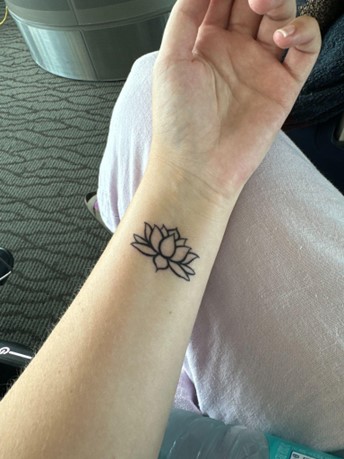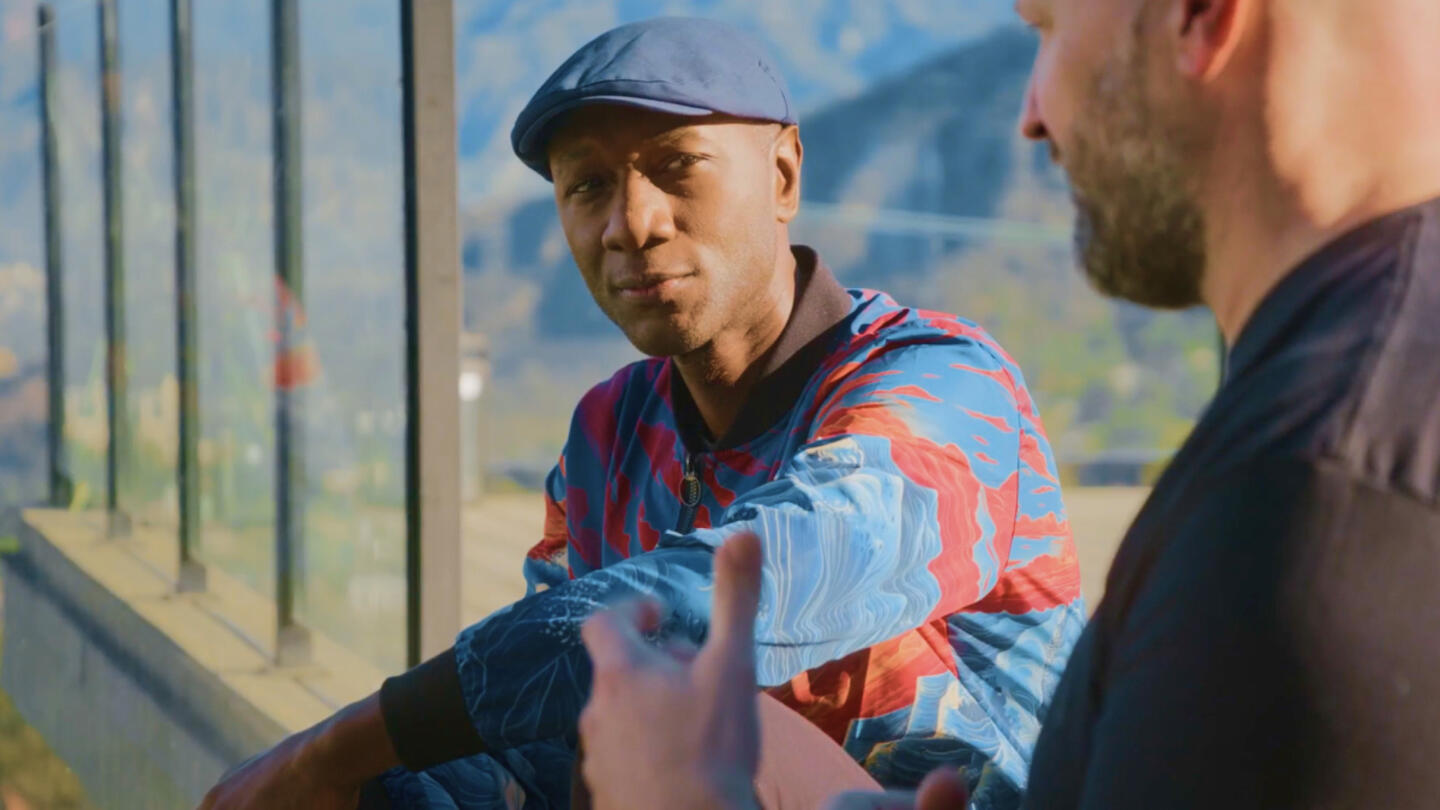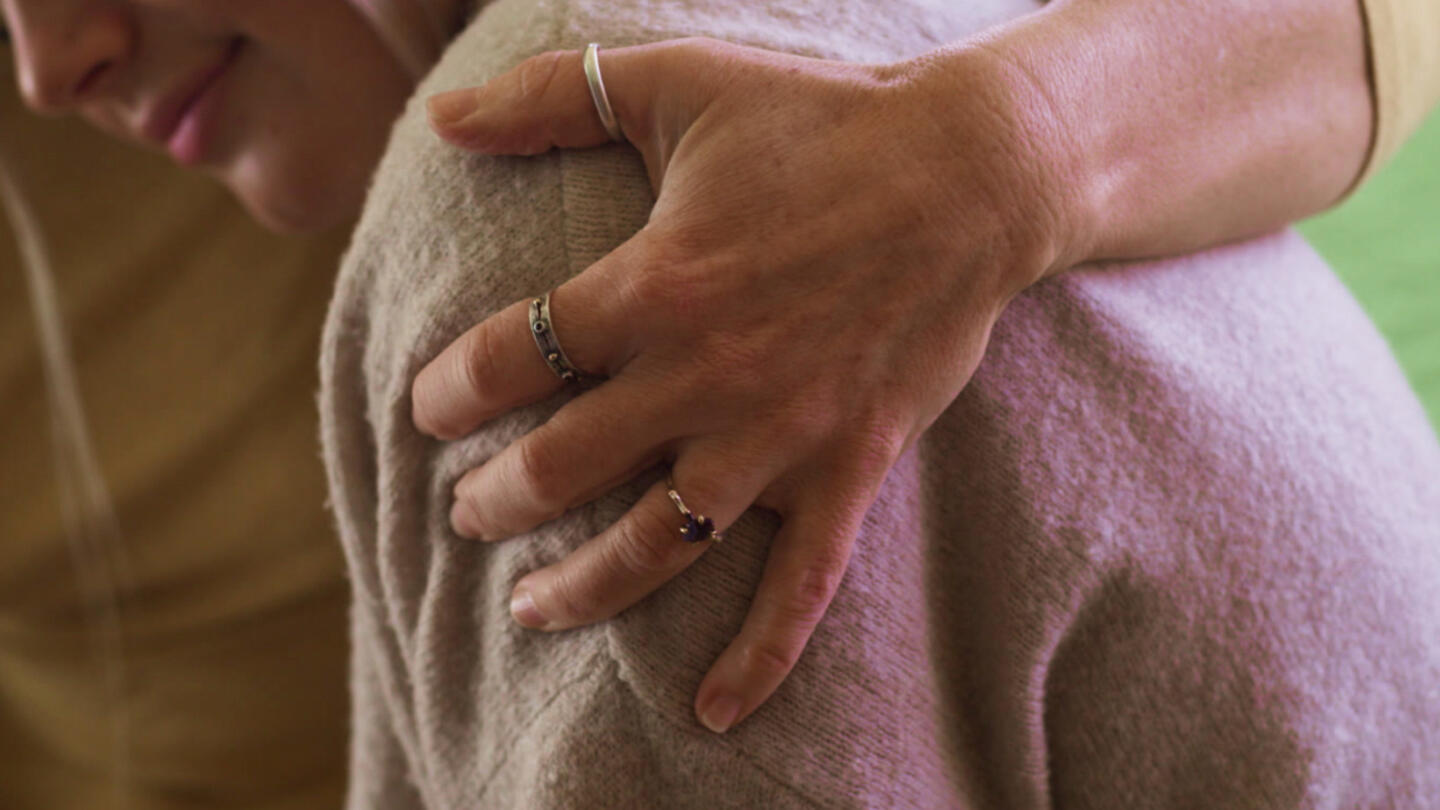*This piece is written as a first-person account, as told to a Stand Together writer by Nora Unkel, a filmmaker at Freethink.
One in 5 children in the United States is sexually abused before the age of 18. I was one of them.
It’s not a story I tend to share with everyone, but as a filmmaker, when I was assigned to cover Saprea — an organization that tackles childhood sexual abuse with a unique approach — my personal experiences came into play in ways they never had before.
I am 32 now, and I’ve been in individual therapy since I was 14 to manage the trauma. I have also tried yoga, mindfulness programs, and acupuncture. It had all been very isolating. Group counseling like I saw happening at Saprea was new, albeit intimidating.
Based in Salt Lake City, Saprea’s approach to healing trauma is all about taking the isolation out of healing. The saying that stood out to me while making a short film with them was, “Abuse happens in isolation. Healing happens in community.”
The work is vital to so many. Studies show that eating disorders, substance use, depression, anxiety, and even suicide can be linked to childhood sexual abuse. Many programs treat these symptoms and other coping mechanisms without addressing the root experience of abuse.
Saprea goes straight to the source of the trauma. This group experience is designed to help survivors process their trauma in ways that help them feel less alone.
“The key to changing [abuse] is to help people stop looking away,” said Chris Yadon, the managing director of Saprea. He and his team believe that bringing survivors together into a group healing environment empowers them to break out of the shadows and see that they are not alone.
Hearing women talk about their experiences while making our film on Saprea sparked a nagging curiosity in my brain. I wanted to experience the organization’s approach for myself and understand what it felt like as a survivor. So, despite my nerves, I accepted the opportunity to attend one of its four-day retreats at a mansion in the desert, hoping to process my experience in a way I had never tried before. I went into it with no idea of what to expect.
Here’s what happened.
No, Mom, I can’t just ‘get over it.’
Looking away — avoiding the trauma of my experience — was the “healing” approach that had been drilled into me my entire life. My parents often told me how much they wanted me to “just get over it.” I had only ever gone to individualized therapy. To be honest, I didn’t know there were any other options. It wasn’t something people talked about. It was always swept under the rug, so I had no idea that programs like Saprea existed — or that the abuse I experienced was so prevalent.
I can’t forget about the abuse. Like all survivors, it is hard-wired into my brain — something I first learned while making the film with Saprea. Only now can I speak openly about it. No survivor should have to wonder, “What’s wrong with me?” No survivor should lose their life or their dignity or passion for life because of what someone else did to them.
The key is to stop treating childhood sexual assault in isolation.
Before attending the conference, it was hard for me to picture what that would mean. What level of healing were the other women going to be at? Could I really trust the program? I nervously joked to friends about whether I’d be trafficked or not, given the secret location.
When I arrived in Salt Lake City on a sunny, clear Monday afternoon in August, groggy from my sleepless red-eye flight, a therapist picked me up with five other women and drove us to the retreat center. I immediately felt a part of something bigger than myself. The retreat started from that moment. On the drive over, a counselor explained that simply by showing up, we had each acknowledged our deepest, darkest secret without uttering a word.
We’d done the hardest part.
I felt cared for immediately. Every detail was planned out and prepared for us. The pillows even had the fold in the middle that you only see in Martha Stewart books. The air was clean and smelled like the fresh fruit laid out on tables as we walked in.
The first activity for our group of 15 was lunch, a chance to mingle lightly and get to know each other. The chefs thoughtfully catered to each of our diverse dietary needs, which was honestly quite remarkable.
We found a projector and dozens of comfy couches in the main meeting room. That first night, we had a class on the science of trauma, learning that childhood sexual abuse can rewire the brain’s neural pathways, impacting a person’s actions and thought processes for years to come. We also learned that those damaged pathways can be healed, but first, we have to unravel the taboos and start talking about what happened.
I turned off my phone and tucked it in my bag for the next few days. Most of us spent the entire retreat barefoot. We were all just living in the moment.
A retreat as individual as each member of the community
Healing looks different for everyone. I knew this going in, but I didn’t know what that might look like in a group setting. I wondered if this program would do more harm than good. We were picking at scabs that were much easier to leave unexamined.
Childhood sexual abuse is often addressed in isolation, leading to survivors not understanding how shared their experiences are. Saprea reverses that.
We explored different forms of healing so we could each find what worked best for us: discussion groups, Muay Thai (a martial art), arts and crafts, and classes on everything from sleep to sexual health to coping mechanisms. Everyone’s healing journey is unique, and Saprea provided opportunities to experiment with various approaches.
Before attending the retreat, I thought of the phrase, “It takes community to heal,” as more of a platitude than a reality. I was nervous it would translate to facilitators instructing us on how to feel better based on science without truly considering our individual experiences.
However, as I got to know the other women, I quickly realized that one of the most powerful ways for me to heal was by helping others.
I cheered on one of the shyest women in the group as she punched away, uninhibited, during Muay Thai practice. In other sessions, I supported friends as they named aloud — some for the first time in their lives — the person who had abused them. Their strength gave me the courage to share more of my story, which, in turn, inspired others to do the same. Many chose to open up, though there was never any obligation to do so.
We began to see similarities in our life choices and patterns of behavior resulting from trauma. Many of us were shocked to see ourselves reflected back in each other. We had been hurt or ignored by family in similar ways.
Early on, I had a small yet meaningful moment that reassured me I was among friends: When one of the other participants showed me the Reiki beads she had brought, I pulled out my Tarot cards. We both were delighted to find someone else who appreciated nontraditional methods of healing.
Sign up for the Strong & Safe Communities newsletter for stories, ideas, and advice from changemakers working with their neighbors to address the biggest problems we face.
Childhood sexual assault affects every race, religion, and socioeconomic bracket. I noticed this immediately at Saprea.
Of the 15 participants, the youngest was about 22 and the oldest was in her 70s. There was an Indigenous woman, a Black Christian woman, a Jewish woman from New York, a Muslim woman, and several Midwesterners. We all came from such distinct and different backgrounds. We wouldn't have been brought together for such deep conversations under any other circumstances. But because we were all there for the same purpose, the labels disappeared, and we were able to be our authentic selves.
Most of all, the retreat allowed us to have intimate, open conversations with each other during meals, evening downtime, and between activities. It was the first time many of us were surrounded by others who understood our experiences. We finally didn’t have to explain ourselves.
Many of the other survivors worked in the social services or as therapists. Many were used to helping others but hadn’t always taken the time to take care of themselves. As one woman put it: “I am always the last person in a group to go through the door. I’m usually the one holding it. But here at Saprea, suddenly that’s every single one of us ... and each of us had to learn how to walk through that door first — how to put ourselves first for once.”
The purpose of the retreat quickly became clear: It wasn’t to heal our trauma completely in four days. It was to build a community. I would never have guessed that over four days, I would gain a new lifeline in these women.
Saprea showed us that we aren’t alone. I saw different mirrors of myself at different moments in life. I realize that I had survived so much, because I recognized it in them — and now we can all build from our collective strength together.
A support system to last a lifetime
Toward the end of the retreat, I decided to get matching tattoos with three close friends from the retreat — my first tattoo.
We all got lotus flowers. A lotus flower blooms in the mud. One of the last exercises we did together revolved around this bud that stays buried under layers of mud and dirt and blooms once it reaches the light at the top. We had all endured the ugly, grotesque parts of life, and now we were each transforming into something beautiful.
I got the tattoo on the weakest part of my body — my left wrist — to remind me of my inner strength.

While we were getting the tattoos, the artist started making inappropriate comments about one of our friends’ bodies. By then we had spent days together, supporting each other as we became more confident in sharing our stories and speaking aloud. The rest of us quickly and politely — but firmly — told him, “You cannot speak to her like that. Get your hands off her.”
We dared to confront him because of the emotional week we had just spent together — right then, we got to bring that strength back into the real world.
My friends from the retreat and I are in touch every day. We’ve established an emoji signal we can text to each other when we’re having a hard time or feeling triggered. When we do, we don’t have to explain ourselves. Everyone knows to send love and support.
As survivors of childhood sexual assault, many of us had no aspirations — we couldn't imagine our futures. But at Saprea, surrounded by friends, we meditated on meeting our future, wiser selves. Who would that future self be? What would she look like? What gifts would she have to offer?
It has always been hard as a survivor to picture a future me. But now, thanks to the support of my new community, I’m ready to meet her.
Saprea is supported by Stand Together Foundation, which partners with the nation’s most transformative nonprofits to break the cycle of poverty.
Learn more about Stand Together’s efforts to build strong and safe communities and explore ways you can partner with us.

At this ‘resort,’ children with intellectual disabilities are seen as gifts to be celebrated and loved.

Veterans experience loss when leaving service. Could this be key to understanding their mental health?

The Grammy-nominated artist is highlighting the stories we don’t get to hear every day.

With his latest project, Blacc isn’t just amplifying stories — he’s stepping into them
